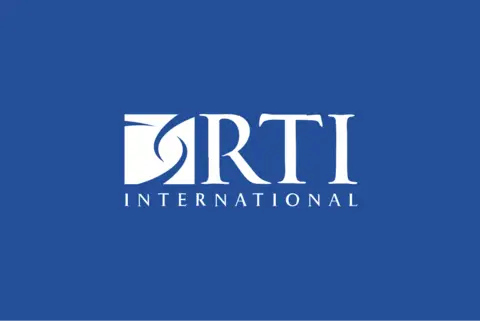RESEARCH TRIANGLE PARK, N.C. — The RTI Fellow Program is pleased to announce the following appointments and promotions:
- Christopher Krebs and Barrot Lambdin have been named RTI Fellows
- Megan Comfort and Marie Gantz have been appointed as Senior Fellows
- Josephine Mauskopf and Richard Reithinger have been appointed as Distinguished Fellows
- Meera Viswanathan has been promoted to Senior Fellow
- Tami Mark has been promoted to Distinguished Fellow
Christopher Krebs, senior research social scientist

Dr. Krebs has extensive research experience in the areas of corrections, crime and victimization, substance abuse epidemiology and treatment, intimate partner and sexual violence, HIV transmission among and associated high-risk behaviors of offenders and inmates, criminal justice systems, and program evaluation. He has employed both quantitative and qualitative methods in his research and has extensive experience designing studies, developing and testing survey instruments, analyzing data, and disseminating findings. Dr. Krebs is most well-known for his research on the sexual harassment and sexual victimization experiences of college students.
Dr. Krebs holds both a master’s and doctorate in criminology from Florida State University. He earned a bachelor’s in sociology from Emory University.
Barrot Lambdin, senior epidemiologist and implementation scientist

Dr. Lambdin is an assistant adjunct professor within the Department of Epidemiology and Biostatistics at the University of California, San Francisco and an affiliate assistant professor within the Department of Global Health at the University of Washington. Over the last 15 years, Dr. Lambdin has led implementation science initiatives including community-based naloxone distribution and supervised consumption services in the United States, opioid treatment in Tanzania, as well as HIV prevention and treatment in several countries. Most recently, Dr. Lambdin has served as the principal investigator on NIH-funded initiatives to reduce opioid overdose fatalities and improving the delivery of opioid treatment and HIV treatment for people who use drugs.
Dr. Lambdin earned his doctorate in epidemiology from the University of Washington, a master’s in public health from Emory University and a bachelor’s in biology from Millsaps College.
Megan Comfort, senior research sociologist

Dr. Comfort's research centers on understanding pathways to promote equity, justice, and wellbeing for people involved with the criminal legal system and their loved ones. She has expertise in ethnography and in-depth interviewing, as well as extensive experience conducting mixed-methods research to examine how systems perpetuate and intensify structural racism. Dr. Comfort is strongly invested in mentoring early-career researchers including first-generation college students, family members of incarcerated people, and scholars who have been involved with the criminal legal system. In her work, she prioritizes collaborating with community partners to produce actionable and meaningful research findings. She is an Adjunct Assistant Professor the University of California, San Francisco in the Department of Medicine. She also serves as an Advisory Board member for UnCommon Law and is on the Essie Justice Group Advisory Council.
Dr. Comfort has a doctorate in sociology and a master’s in criminology both from the London School of Economics and Political Science. She earned a bachelor’s in Black studies at Wellesley College.
Marie Gantz, senior research statistician

Dr. Gantz is skilled in randomization schemes, power and sample size considerations, outcome selection, interim monitoring and statistical analysis methods for clinical studies. She provides oversight for every aspect of data coordinating centers (DCC). Currently, she serves as DCC Principal Investigator (PI) for several multisite research projects. In these roles, Dr. Gantz collaborates with clinical investigators on randomized clinical trials and observational studies across a variety of clinical conditions. Her experience includes studies of gut microbiota, metabolites, and fungi, as well as microbiota from urinary and vaginal specimens. She studies precision nutrition and clinical conditions including pelvic organ prolapse, fecal incontinence, urinary incontinence, extremely premature birth, and Prader-Willi syndrome.
Dr. Gantz received a doctorate in biostatistics from the University of Kentucky and a master’s of applied statistics from George Mason University. She earned a bachelor’s in rhetoric and communications from the University of Virginia,
Josephine Mauskopf, Vice President of Health Economics, RTI Health Solutions

Dr. Mauskopf has implemented economic evaluation programs for drugs or vaccines for bacterial infections, viral infections, psychiatric illness, and neurologic diseases. She has also performed many burden of illness studies and strategic literature reviews that have been published in peer-reviewed journals. Dr. Mauskopf was Editor-in-Chief of the journal Value in Health for eight years and was co-chair of two ISPOR Task Forces, one to develop guidelines for budget impact analysis and the other to develop guidelines for the economic evaluation of vaccination programs.
Dr. Mauskopf received her doctorate in economics, a master’s in health administration and a masters in physiology and pharmacology all from Duke University.
Richard Reithinger, Vice President, Global Health

Dr. Reithinger is a practical, innovative leader in the field of infectious disease epidemiology, case management, prevention, surveillance, control and elimination. He is an epidemiologist with extensive experience managing complex public health programs in Africa, Central Asia, and Latin America, as well as developing standards-based country strategies and policies, and relying on a collaborative and participatory approach to management to work effectively with public health stakeholders at all levels.
Dr. Reithinger earned a doctorate in epidemiology and a master’s in entomology at the London School of Hygiene and Tropical Medicine at the University of London. He has a bachelor’s in biology and post-graduate diploma in economics from the University of Sussex.
Meera Viswanathan, director, RTI-UNC Evidence-based Practice Center

Dr. Viswanathan is a leading expert in systematic review methodology. She directs the RTI International-University of North Carolina at Chapel Hill Evidence-based Practice Center (RTI-UNC EPC) and the RTI-UNC US Cochrane Network Affiliate. She has worked extensively on methods to refine and add rigor to systematic reviews. Dr. Viswanathan has led or participated in the development of tools and guidance to assess the risk of bias of observational studies and systematic reviews. Dr. Viswanathan also developed guidance on evaluating conflict of interest from nonfinancial sources and on conducting reviews of complex interventions.
Dr. Viswanathan has a doctorate in city and regional Planning from the University of North Carolina at Chapel Hill, a master’s in geography from Jawaharlal Nehru University and a bachelor’s in geography from the university of Delhi.
Tami Mark, senior director, Behavioral Health Financing

Dr. Mark is a health economist whose research focuses on improving behavioral health treatment systems. She has authored more than 130 scholarly articles and numerous government reports. She was a contributing author to the healthcare systems chapter of The Surgeon General’s Report on Alcohol, Drugs and Health. Dr. Mark collaborates with federal and state agencies to improve their behavior health system through data analytics, evaluation, technical assistance, quality measurement and policy development. She has also served on many federal advisory committees.
Dr. Mark earned a doctorate in health economics from Johns Hopkins University, a master’s of business administration from Loyola College and a bachelor’s in psychology from Amherst College.
About the RTI Fellow Program
The RTI Fellow Program was established in 2001 to provide professional opportunities for exceptionally talented staff committed to science, technology, research and policy analysis in support of RTI's mission to improve the human condition. The program has three levels: Fellow, Senior Fellow and Distinguished Fellow.

RTI International Media Relations:
As an independent, scientific research institute with a mission to improve the human condition, RTI International is engaged by clients and partners to conduct evidence-based research and project implementation. We share our work in line with journalistic and scientific standards and maintain a record in RTI’s Newsroom.
RTI International is an independent, scientific research institute dedicated to improving the human condition. Our vision is to address the world's most critical problems with technical and science-based solutions in pursuit of a better future. Clients rely on us to answer questions that demand an objective and multidisciplinary approach—one that integrates expertise across social, statistical, data, and laboratory sciences, engineering, and other technical disciplines to solve the world’s most challenging problems.
For more information, visit www.rti.org.






